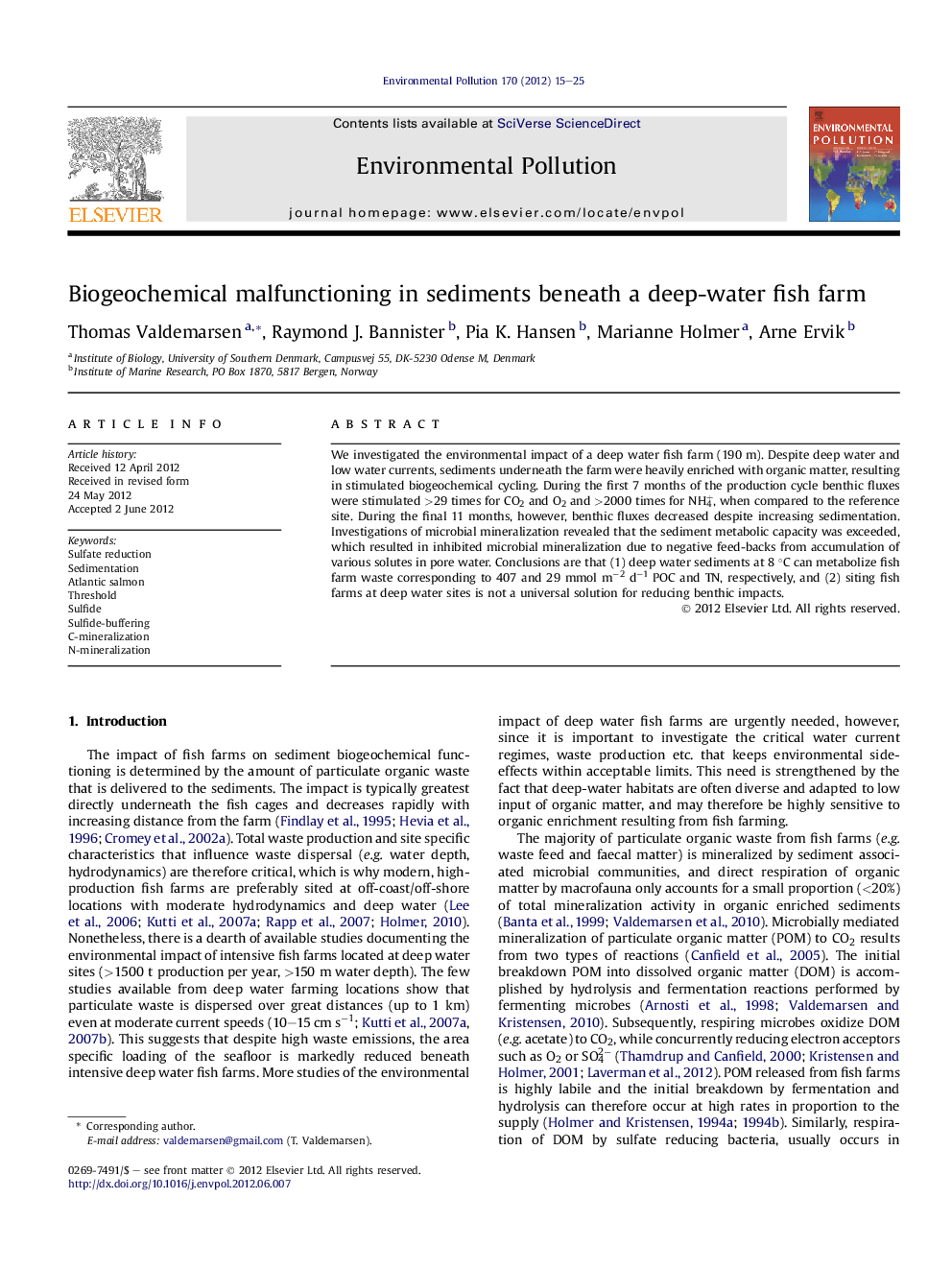| Article ID | Journal | Published Year | Pages | File Type |
|---|---|---|---|---|
| 4424748 | Environmental Pollution | 2012 | 11 Pages |
We investigated the environmental impact of a deep water fish farm (190 m). Despite deep water and low water currents, sediments underneath the farm were heavily enriched with organic matter, resulting in stimulated biogeochemical cycling. During the first 7 months of the production cycle benthic fluxes were stimulated >29 times for CO2 and O2 and >2000 times for NH4+, when compared to the reference site. During the final 11 months, however, benthic fluxes decreased despite increasing sedimentation. Investigations of microbial mineralization revealed that the sediment metabolic capacity was exceeded, which resulted in inhibited microbial mineralization due to negative feed-backs from accumulation of various solutes in pore water. Conclusions are that (1) deep water sediments at 8 °C can metabolize fish farm waste corresponding to 407 and 29 mmol m−2 d−1 POC and TN, respectively, and (2) siting fish farms at deep water sites is not a universal solution for reducing benthic impacts.
► We studied the biogeochemistry in sediments beneath a deep-water fish farm. ► Initially, sediment biogeochemical cycling was stimulated to high levels. ► After 10 months, microbial mineralization was inhibited due to organic overloading. ► Conclusion: deep water sediment has an upper limit for organic matter mineralization. ► Conclusion: deep water fish farms can lead to negative environmental impacts.
